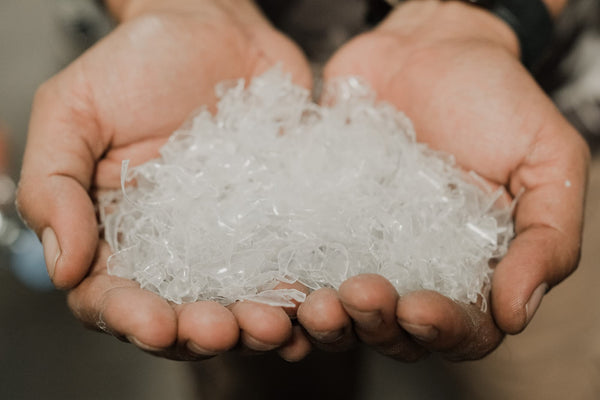The challenge of plastic waste is more pressing than ever. With our oceans turning into plastic soups and our landfills overflowing, the need for sustainable living practices, particularly in reducing plastic waste, is at a critical point. This article delves into why reducing plastic is crucial, how individual actions can make a difference, and the practical ways to cut down on plastic in our daily lives, as well as highlighting how waterdrop® products can support an individual to make such positive changes.
The Urgency of the Plastic Crisis
Every year, our planet is burdened with millions of tons of plastic waste, a significant proportion of which ends up in our oceans, catastrophically damaging both marine life and ecosystems. And whilst the production and disposal of plastic releases harmful greenhouse gasses that contribute to global warming, tiny particles of degraded plastic called Microplastics continue to make their way into our food chain and water supply, presenting unknown long-term health risks.
The Power of Individual Action in Tackling Plastic Waste
For years, the plastic crisis has cast shadow across almost every aspect of our lives, but individual actions can drive collective change. By making conscious choices to reduce our plastic footprint, we not only help the environment but also set a precedent for others, including future generations, to follow. Small steps, taken consistently, can lead to significant environmental impacts.

Practical Steps to Minimize Your Plastic Footprint
- Opt for Reusables: One of the most effective ways to reduce plastic waste is to use reusable items. For instance, swapping single-use plastic bottles with reusable ones can significantly cut down on waste. waterdrop® offers an extensive portfolio of Glass and Stainless Steel Bottles – a considered design, perfect for everyday use.
- Refuse Unrecyclable Single-Use Plastics: Simple actions like saying no to plastic straws, utensils, and bags can make a big difference. Carrying your own reusable alternatives is a small effort with a big impact.
- Bulk Buying and Considered Packaging: Purchasing in bulk reduces the amount of packaging waste. Additionally, choosing products with eco-friendly packaging or no packaging at all can further reduce your plastic consumption.
- Recycling and Upcycling: While recycling is important, it's not a complete solution. Upcycling, or creatively reusing items, can give plastic products a new life, reducing the need for new plastics.
- Supporting Sustainable Brands: Choosing brands committed to environmental stewardship can amplify your impact. By supporting companies like waterdrop®, which prioritize sustainability, you're contributing to a larger movement for change.
Beyond Plastic: The Broader Scope of Sustainable Living
Reducing plastic is a significant step towards sustainable living, but it's just the beginning. Sustainable living encompasses a holistic approach to life, considering how our choices, from what we buy to how we commute, impact the environment. It's about creating a lifestyle that respects and preserves our planet for future generations.
Common Questions and Answers on Reducing Plastic Waste
Q: Can individual actions genuinely impact the plastic crisis?
-
A: Yes, individual actions, when multiplied across millions of people, can lead to substantial change.
Q: What are some easy first steps to reduce plastic in my daily life?
- A: Start with simple changes like using a reusable water bottle, refusing plastic bags, and buying in bulk.
Q: Is there a health benefit to reducing plastic usage?
- A: Reducing plastic usage can lower your exposure to potentially harmful chemicals often found in plastic products.
Embracing a Sustainable Lifestyle with waterdrop®
At waterdrop®, we understand the importance of reducing plastic waste and are committed to offering sustainable solutions. Our range of reusable bottles, for instance, is not just a step towards reducing plastic but also a statement of style and a commitment to the planet. By choosing waterdrop®, you're joining a community dedicated to making a difference.
In conclusion, reducing plastic waste is a critical aspect of sustainable living. It's about making conscious choices, small changes, and supporting brands that align with these values. Together, these actions contribute to a healthier planet and a more sustainable future. Let's join hands in this crucial mission and pave the way towards a greener, cleaner world.




















